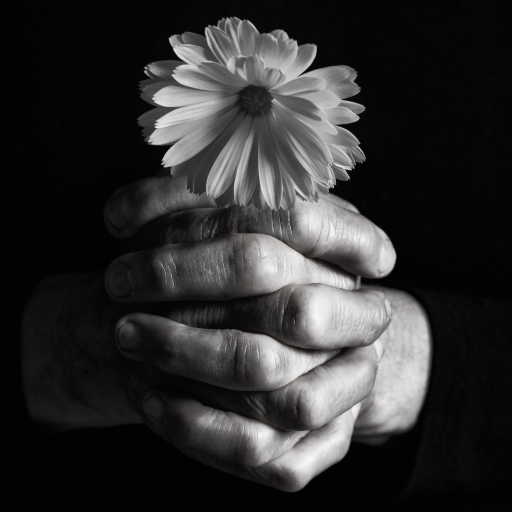“Grief is the result of not accepting the world the way that it is…”
I’ve been meditating on this idea for a while. I heard it somewhere. I’m not sure where. Maybe in an AA meeting? Possibly. A lot of good stuff gets shared in that space by people who have learned how to reclaim their joy.
I accept this proposal under certain conditions, but it doesn’t address the entire complexity of grief.
Loss of a loved one: by natural causes, disaster, violence or suicide.
Loss of a relationship.
Loss of a way of living.
And on. And on.
These all present challenges, and opportunities, to embrace, examine and come to terms with grief.
The Cultural Touchstone
One thing we need to understand right at the top of the conversation is that different cultures experience and handle grief in widely different ways.
Cultural anthropology is not everyone’s bag, but it’s helpful to give at least a cursory consideration to how processing grief is tied to culture.
If you embrace a desire to widen your perception of the great diversity of cultural practices around grief, you have already expanded your capacity to understand your own.
Francis Weller, in his book The Wild Edge of Sorrow, tells us:
“For most of our time as a species, the primary association with grief has come through the death of someone we loved. Every culture has crafted rituals to attend to the wild mystery of death, and the rainfall of sorrow that accompanies the disappearance of the beloved.”
Many modern “western” cultures rely on practices of only a few hundred years, perhaps. Whereas more “ancient” cultures in parts of Africa, South America, Asia and Australia, many North American indigenous populations, have experience and traditions dating in the thousands of years.
Have you thought about your rituals around grief? Is there any cultural significance to how you deal with sorrow?
One thing is for sure: we all need to touch it, feel it, look directly at it. That doesn’t mean we dive headfirst into the deep end, to risk being swallowed whole. We do need to experience it, though. By allowing ourselves to grieve, we also allow ourselves, without the need for artificial stimulation or excitement, to feel genuine joy.
My Struggle
I am not special.
Every single human on the planet experiences loss.
I am not unique.
It is this commonality that makes life bearable and joyous.
I have lost 2 dear friends to hanging, another to a tragic accident. A friend who overdosed. An ex who put a bullet in her brain. Shall I continue?
I finally got sober in September of 2020, when I was 50. On Zoom. Right as we were getting into the darkest and loneliest phase of the Covid pandemic. Talk about a weird experience.
Millions of people around the world were faced with loved ones getting sick; millions suddenly and unceremoniously ripped from this life. Bereft of simple life-giving breath. Young and old, strong and weak alike.
The rest of us left wondering if we or someone close to us was next.
I, like most everybody, was forced to work from home. With no need to keep myself together enough to drive anywhere, my drinking took a hard turn straight down to the bottom.
And just so you know, rock bottom has a basement. You just gotta keep digging.
After several thousand promises to myself and others, I was finally able to get the foot off my neck that had been there for 35 years. I said goodbye to an old friend. Not a good friend, just an old one.
The Unfulfilled Mindset
I’m not one particularly given to reducing my life to slogans or idioms. I was pretty bummed that my life, at least temporarily, could be summed up in a dogmatic bumper sticker that announced to the world I was in a new club.
One day at a time? Yeah, dummy, that’s how time works.
That’s how I lived my life for a while. I still do, but it’s different after 3 years. I limited my scope to how I spent my time and conducted myself in a 24-hour period.
Over time I realized my thoughts were slowing down enough to actually differentiate my emotions. As I slowly unraveled the knot and examined the individual threads, I realized what I have control over (which is very little) and what I unnecessarily hold on to.
I need to spend an appropriate amount of time processing loss and finding the courage and resolve to let go. Everybody does, and only the individual can determine how much is needed.
But after a certain point holding on to grief can become a crutch or an excuse for destructive behavior. An unwillingness to accept the reality of the world as it is.
For me, the words “I wish” are dangerous.
I wish Mitch was still alive.
I wish I could have a drink like a normal person.
To me this demonstrates an unfulfilled mindset. The unwillingness to say farewell. The ridiculous desire for an impossible way of life.
Conversely, it cuts me off from participating in the joy that is available in this very moment. If I find a way to carve a special place in my heart where I can safely house my grief and memories, then I can find joy in the present.
A special place that’s like a shadowbox with infinite nooks, each holding a dear memory. I can take them out anytime I like and share them with the world or keep them to myself. Then I can put them back and keep going.
I miss Mitch. I will honor him by living a happy life.
I want a drink. In 3 minutes I won’t. Right now my life is wonderful.
Remember what Andy Dufresne said to Red in the yard at Shawshank? “Get busy living, or get busy dying.”
Your choice.
Manufactured Grief
This unfulfilled mindset also manifests itself in the form of desire, which is really a state of perpetual grief.
Naval Ravikant, in his ‘Naval Podcast,’ explains that “desire is a contract you make with yourself to be unhappy until you get what you want.”
This kind of grief is different from loss. It’s unnecessary. It places a condition on our existence and our happiness. Once I have x, y, and z, then I’ll be happy. And then what? We’re good-to-go for the rest of our life?
No. Not really.
This type of conditional existence will inevitably lead to the next desire. And the next. And so on.
It demonstrates an unwillingness or inability to stop and look around at the goodness and happiness that may be around us right now. In this moment.
Several times a day, I try to stop and think about what is around me in the moment. To take a breath and remember what I am trying to achieve in my life. To be present in the moment. To realize, I don’t need certain things to happen and then I’ll find peace. But, when I am at peace, good things will happen.
I have to.

Complicated Grief
There are some sorrows so powerful that finding a way through to the other side seems impossible. Lost in a forest in the dead of a moonless night.
Some cases of grief can go on for a year or more, with seemingly no end in sight. The Mayo Clinic describes this as “complicated grief,” or sometimes referred to as “persistent complex bereavement disorder.”
Cases like this may require someone who can help in a professional capacity.
Now, I’m not a doctor, so I’m not going to get too deep into this. But there is a link below to the Mayo Clinic article that provides some insight and lists some symptoms to look out for. And I’ll leave it at that.
I am, however, a human being with an emotional heart. So it may be up to me at times to look out for my fellow human and say “Hey. Looks like you’re having a hard time. Can I help?”
It’s up to all of us to look out for each other.
Get Off Your Pity Pot!
Not to be confused with “suck it up!” (Although being a Gen Xer, this is part of my emotional DNA.)
My “western” upbringing has largely taught me to deal with my grief on my own. Beyond the post-death “wake” or “celebration of life,” we seem mostly left to our own devices to come to terms with loss.
So yeah, part of me still pushes grief to the back seat. But an emerging part of me is determined to resolve the lingering sorrows. So I can see the world the way that it is.
I am happy to see further prioritization of mental health in mainstream advertising. Professional athletes are a big influence (there’s no denying their cultural relevance), showing their vulnerability and encouraging us to seek help if we need it. And to not hesitate to look directly at a fellow human and ask “how are you doing right now?”
Given the fact we are collectively experiencing some amount of grief for what is happening all over the world, in addition to personal struggles, we need to check in on each other. It doesn’t cost anything to take a second and make somebody feel seen.
Grief never goes away. It is our lifelong companion for as long as we draw breath. It’s how we conduct ourselves in the face of sorrow that helps define who we are.
Look out for each other.
Look around you for an opportunity to ask someone “How are you today?”
Lets be better humans together.
Feedback?
Do you have an experience worth sharing?
I’d love to hear about it. Just pop it into the CONTACT FORM and I’ll get back to you.
I’m always looking for ways to improve my life, and there’s a lot of experience out in the world. So give it up!
Some stuff I read:
–Mayo Clinic – Complicated Grief
–Naval Ravikant (youtube clip of ‘Naval Podcast’)- “Desire is a contract…“
–Francis Weller – The Wild Edge of Sorrow (you gotta look up this one on your own)
Acknowledgements:
I’d like to thank Ed Gandia who introduced me to Naval Ravikant through one of his LinkedIn posts. I’d also like to thank Anderson Cooper who, through his All There Is podcast episode “Facing Our Grief” introduced me to the writings of Francis Weller.
* Any Content Contained on This Site is for Informational/Educational Purposes Only and Does Not Provide Medical Advice. The full policy can be viewed HERE.




